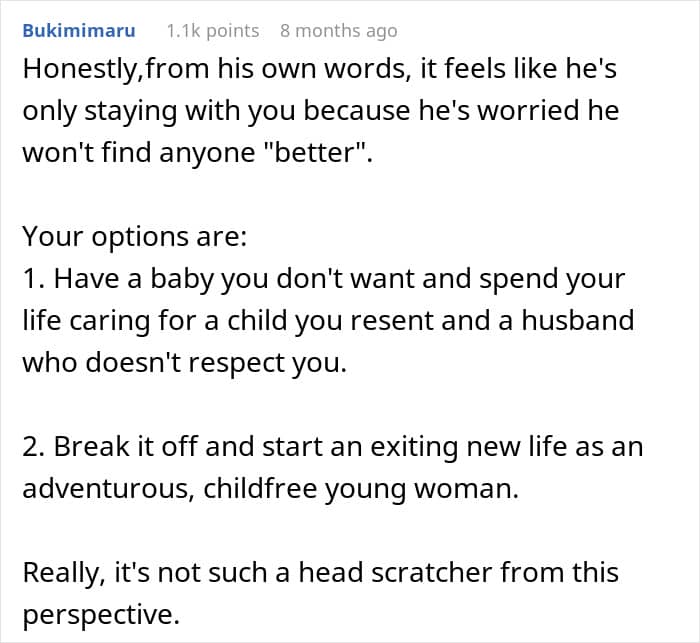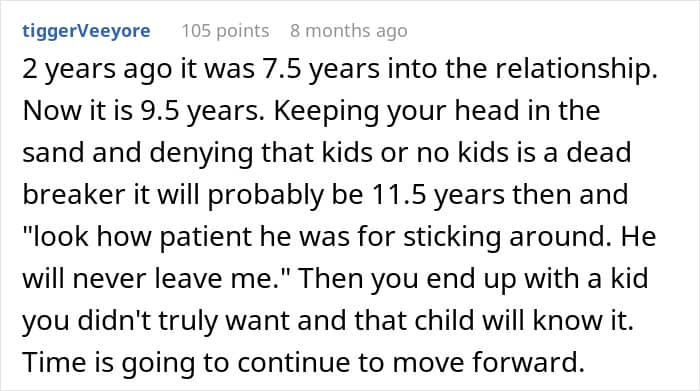Boy meets girl, they fall in love, they get married, and bam, kids. However, have you considered that some couples have decided that kids just might not be a part of the picture? But what happens when one party is on board with it, and one isn’t?
That’s exactly what today’s Original Poster (OP) is facing. After nearly a decade with her husband, she’s confronting an issue they both thought was settled: she doesn’t want kids, and he does. But instead of reaching a peaceful resolution, their conversations turned into emotional tug-of-war.
More info: Reddit
RELATED:In any relationship, one of the most essential foundations is being on the same page about certain things

The author and her husband have been together for ten years but officially married for three years






She admitted that she didn’t have a deep conversation about kids earlier in their relationship and in reality, she doesn’t want kids
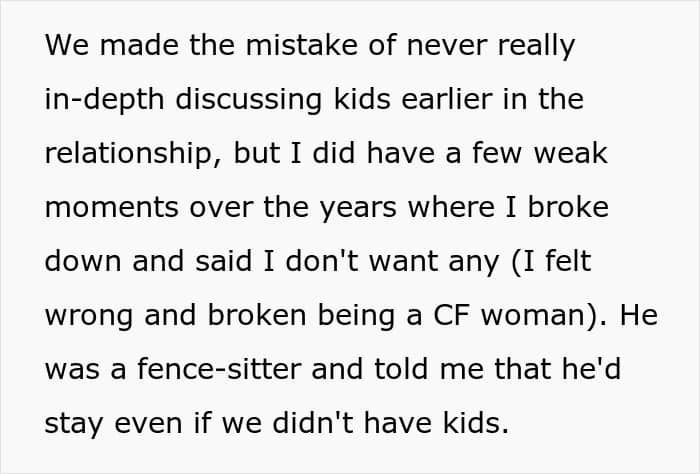

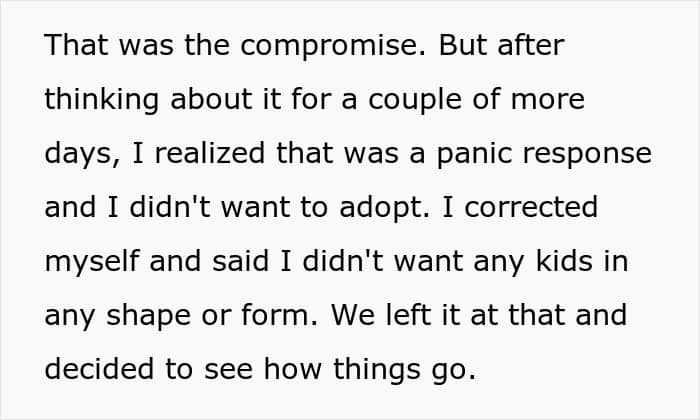

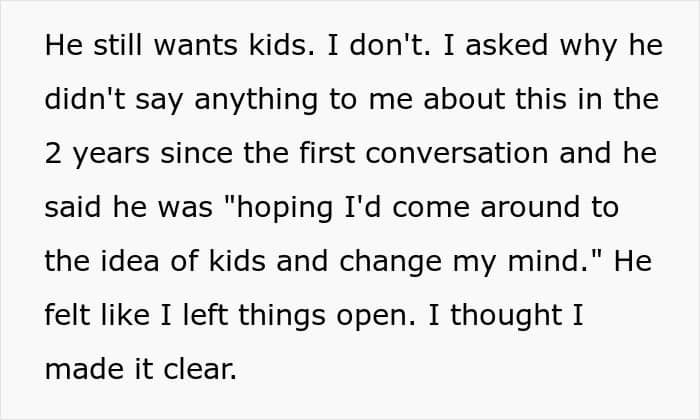

After two years of marriage, her husband asked her if she wanted kids, and when she said no, he didn’t speak to her for a week
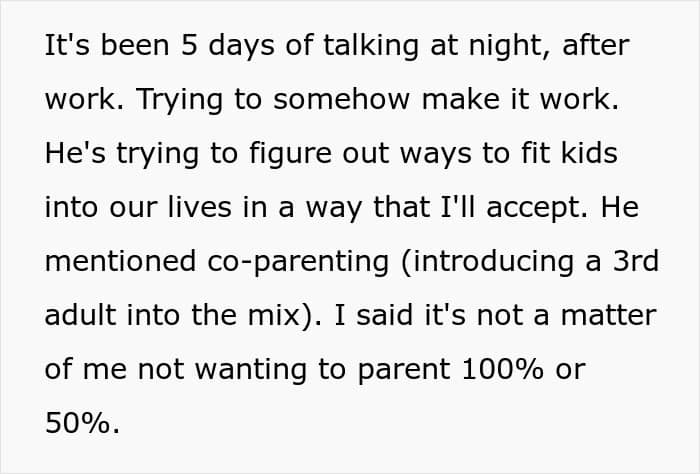
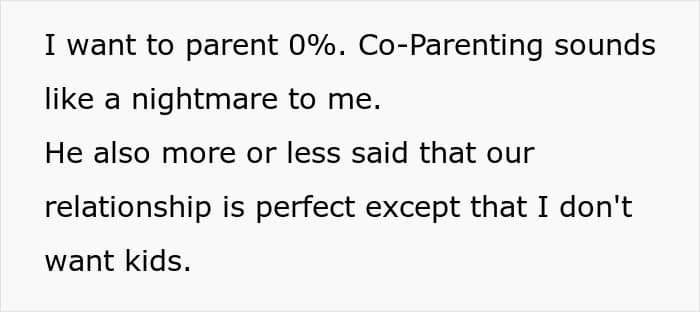

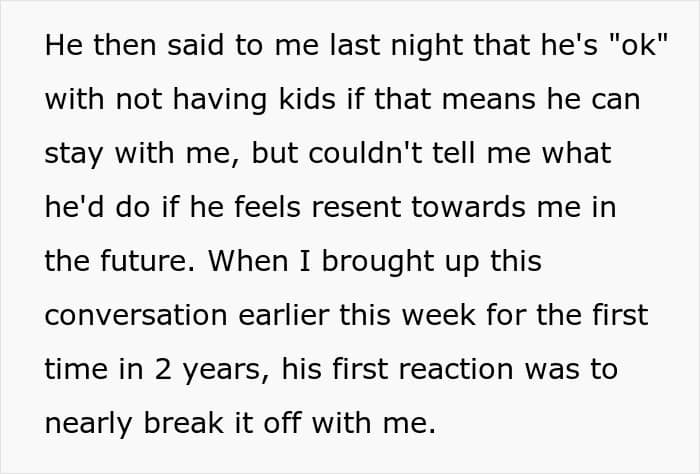
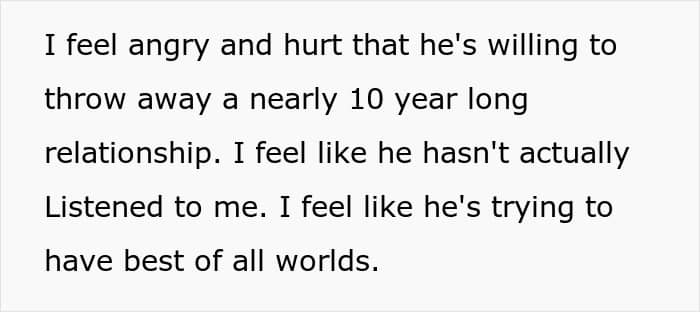

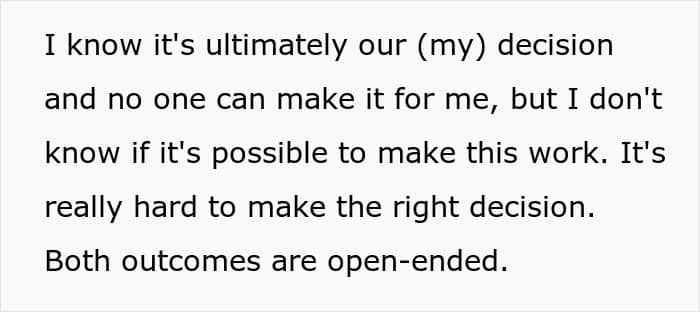

After some time, the husband began to suggest ways they could be parents, but after she refused, he said he would be okay without having kids
The couple, married for three years but together for almost ten, never had a deep discussion about children early on. While the OP always leaned toward being child-free, moments of self-doubt led to mixed signals. Her husband, a self-proclaimed fence-sitter, assured her he would stay with her regardless. But years later, that promise started to show cracks.
Two years prior, the topic surfaced again; she reaffirmed her stance on not wanting to have kids, but his response was silence for a week. While they eventually talked it out, she momentarily considered adoption as a compromise, only to later realize that was a panic-driven reaction. For her, it wasn’t about how children entered their lives; she simply didn’t want them.
The OP assumed they had settled things, but her husband admitted he had been quietly hoping she would come around. Now, he was trying to find creative workarounds, suggesting co-parenting with a third person and structuring their lives in a way that makes parenthood more manageable. But for her, no arrangement makes sense because her feelings on the subject haven’t wavered.
More painfully, she’s struggling with the realization that their seemingly perfect relationship might not be enough for him if children aren’t in the picture. While he now says he’s “okay” with not having kids, he can’t promise he won’t resent her down the road.
To better understand the significance of discussing children in relationships, We reached out to writer and marriage counselor Ronke Adesina, who emphasized the importance of having the conversation about children early on in a relationship, especially when considering marriage.
“Understanding each other’s views on parenting, family planning, and future goals helps prevent misunderstandings and ensures compatibility,” she explained. While it might not be necessary in the initial dating stages, she noted that addressing this topic before making long-term commitments allows couples to align their expectations and avoid potential conflicts.

We also inquired whether a couple can stay together happily when one wants kids and the other doesn’t. Adesina acknowledged that this can be a major challenge and often depends on personal experiences. “Sometimes, experiencing parenthood can change a person’s perspective, while in other cases, disagreements may create a lot of tension,” she stated.
She also highlighted that factors like pregnancy risks can play a crucial role. “A woman who has endured difficult pregnancies may refuse to have more children, even if her partner wants them.” Ultimately, she noted that this issue can either strengthen or break a relationship, depending on how both individuals navigate their differences.
To further explore relationship dynamics, we asked about the impact of unspoken resentment in a marriage, to which she warned that unresolved resentment is incredibly toxic and can lead to emotional distance, bitterness, and even violence. “If left unchecked, it will slowly erode the relationship, making reconciliation difficult,” she cautioned.
Signs of growing resentment include withdrawal, frequent irritation, passive-aggressive behavior, and a lack of emotional intimacy. According to Adesina, the key to addressing resentment is open communication.
“Partners should express their feelings honestly, and the other should listen without dismissing concerns,” she advised, adding that professional help can be beneficial in preventing long-term damage. If reconciliation isn’t possible, she suggested that separation may sometimes be the healthiest option.
Netizens believe the husband is staying in the marriage out of fear of not finding someone “better” rather than out of true commitment. They also pointed out that delaying the inevitable will only lead to more wasted years.
If you were in the OP’s position, would you stay and hope things work out or walk away now? We would love to hear your thoughts!
However, he also mentioned that he couldn’t promise that he wouldn’t resent her down the line, and netizens suggest it might be a waste of time
